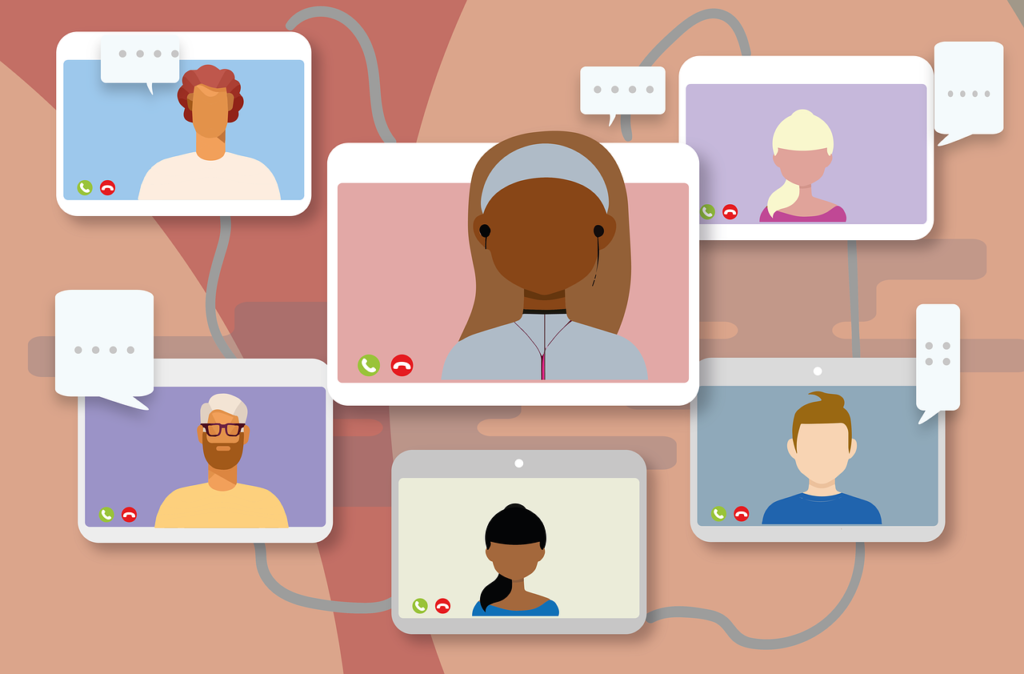
By Shelene Gomes, University of the West Indies,
& Lara Watkins, Bridgewater State University
Students can read about culture, but hearing peers narrate personal experiences in another country provides invaluable firsthand insights. Analysing these narratives allows for a deeper understanding of cultural differences. In this instance, the online platform Flip enabled cross-institutional, cross-border student interactions to discuss cultural similarities and differences— core subject matter of anthropology. Through the sharing of personal stories, the platform facilitated direct intercultural exchanges, bringing anthropological concepts to life in a way the textbook did not.
Seventy undergraduate Anthropology students at The University of the West Indies (UWI) St. Augustine campus in Trinidad and Tobago in the southern Caribbean, and Bridgewater State University (BSU) in Massachusetts, USA participated in a virtual peer-to-peer asynchronous exchange in 2022. As instructors, we envisioned a dialogue-based virtual international exchange as a platform for building an understanding of cross-cultural similarities and differences through peer interactions. Situated within the broader anthropological aim of questioning norms and understanding how ideas and institutions are culturally and socio-historically situated, this exercise provided students with an opportunity to acquire experience in navigating cross-cultural communication.

To begin building an international learning community and to foster engagement during the semester, students were required to upload short video introductions within assigned groups. Following these introductory posts, the goal was to spark communication between BSU and UWI group members. Students were prompted to pose and respond to questions related to course content and the key anthropological concept of culture. This question-driven discussion format enabled students to make connections, share perspectives, and gain intercultural insights from peers in both universities. By integrating these virtual interactions into the course, students applied core anthropological concepts to guide dialogue on topics such as gender and sexuality, movement and mobility.
In the Gender and Sexuality discussion, students were asked to imagine international peers coming to their campus as exchange students and consider: What gender rules and norms would visitors need to ‘know’ or ‘learn’ to successfully navigate the campus? How would they need to behave to participate fully in local American or Trinbagonian social life? How are areas of life informally sexually segregated? Are there spaces where certain genders cannot go? What happens to those who breach the norms?
In the discussion for Movement/Mobility/Social Stratification, the questions were: What do you know about immigration in your area? How would you explain the concerns and debates around mobility and immigration to someone who isn’t familiar with this location? Have you ever experienced constraints on your mobility locally or internationally? What are some factors that influence differential mobilities?
These probing questions and the reflections they evoked encouraged students to identify cultural similarities and differences among diverse student bodies in both institutions. While there are structural asymmetries between institutions in the ‘Global North’ and ‘Global South,’ by answering these questions the students also identified similarities, especially as many students were the first in their families to attend university. This virtual component facilitated peer to peer communication from locations in the Global South and Global North that enabled students to understand what was happening in situ. Students developed a wider understanding of social problems from learning of their peers’ experiences and considering their perspectives. As well, students provided thoughtful insights on what they considered ‘local’ culture and its variations, thereby contesting culture as monolithic and challenging preconceived notions of self and other.
This peer exchange contributed to an anthropological aim of questioning norms and values, asking about broader concerns of power, knowledge and justice by communicating about everyday life and commonplace experiences.
About the Authors
Shelene Gomes (she/her), PhD teaches Social Anthropology and the Sociology of Culture at the University of the West Indies, St. Augustine campus in Trinidad and Tobago. She is a 2023-2024 Visiting Scholar in Residence at the University of Cape Town’s Department of Anthropology.
Lara Watkins (she/her), PhD teaches Anthropology at Bridgewater State University. She serves as an interim COIL/Virtual International Exchange Coordinator and an academic advisor for post-traditional learners.

Leave a Reply
You must be logged in to post a comment.